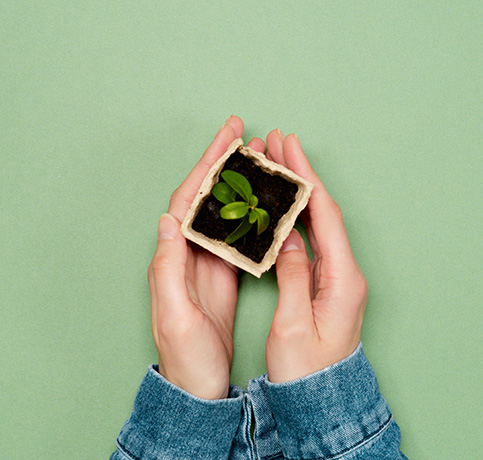Adding Seaweed or Kelp Products
Most homeowners live a distance from the sea. But horticultural research suggests that they should bring a part of the sea to their yards and gardens--in the form of a seaweed or kelp product --to enhance the beauty and health of their plants.
For over 2,000 years, gardeners and farmers around the world who live near the seacoast have been using seaweed to improve their soils and their crops. They recognize that plants grow better with seaweed mulch and in soil fortified with composted seaweed. For a long time no one really understood why seaweed was so good for the yard and garden, but it was obvious that it was. Over the past 20 years, researchers have begun to discover what this wonderful relationship between seaweed and plants is all about.
The seaweed in products for horticultural use is mostly harvested in the arctic fjords of Iceland. It is carefully dried, using low temperature geothermal heat, to preserve all its valuable organic substances. While seaweed is a form of fertilizer, researchers have found that its most significant characteristic is that it acts as a catalyst, or enhancer of plant growth. By enabling a plant to absorb nutrients from the soil more effectively, seaweed works for plants much as a vitamin pill does for humans. It simply helps the plant grow better.
What Do Seaweed And Kelp Products Do?
Under research conditions, various seaweed or kelp emulsions have been used as foliar sprays on plants and they have caused measurable increases in plant growth and performance. Similarly, liquid seaweed emulsions added directly to the soil have increased its microbial activity, accelerating the process of freeing nutrients for plants.
Seaweed or kelp extracts provide most of the micronutrients needed by plants and soil. All living-things require a variety of these micro-nutrients, many in small, or "trace" amounts. Examples include boron, zinc, and iron. These minerals, present in seaweed, improve plant health, yield, shelf life and flavor, as well as resistance to stress, disease, and pest attacks. Some of these minerals may be deficient in soil (there is a zinc shortage in many Eastern U.S. soils, for example), or sometimes favorite plant hybrids and sensitive varieties just can't assimilate existing minerals, no matter how abundant. Soils which are extremely high or low in organic matter and excessively cool or wet weather may also interfere with micro-nutrient intake. Seaweed or kelp can solve these problems.
Seaweed has other valuable properties. It contains growth-promoting hormones. It doesn't leach out of the soil readily and it has a slow release rate. It is a great source of vitamins and beneficial enzymes for virtually all plants. Spraying plants with seaweed extract stimulates leaf bacteria thought to increase the rate of photosynthesis. It short, it does many very good things for all the plants in residential yards.
For Product Information see the file Seaweed and Kelp Products in Yardener's Tool Shed.

